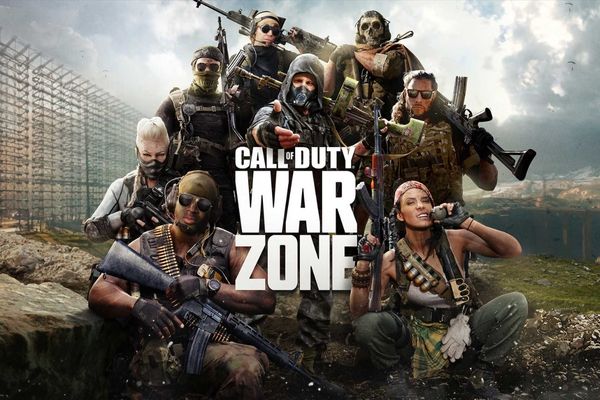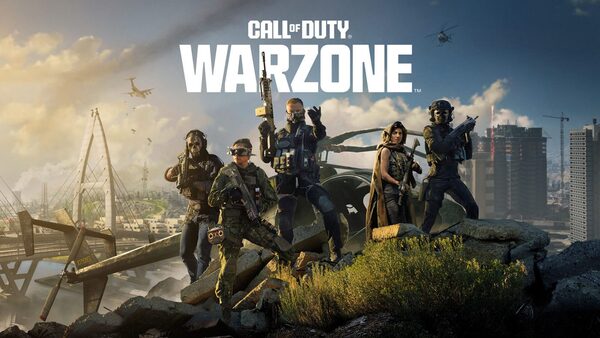Introduction
“Call of Duty: Warzone” is one of the most popular battle royale games to date, consistently attracting millions of players globally since its release. However, one particular issue that has sparked considerable debate within the community is the game’s matchmaking system, particularly the controversial Skill-Based Matchmaking (SBMM). While SBMM is a common feature in many competitive online games, its implementation in “Warzone” has led to heated discussions regarding its effects on gameplay, community engagement, and the player experience. This article delves deeply into the issue of SBMM in “Warzone,” exploring its evolution, impact on players, and the broader consequences for the game’s ecosystem.

The Early Days: Casual Play and Engagement
In the early stages of “Warzone,” matchmaking was relatively simple and followed traditional patterns of casual play. During this time, the game catered to a wide variety of players, from hardcore veterans of the Call of Duty franchise to new players entering the battle royale genre for the first time. Matchmaking focused on player availability and latency rather than skill levels, allowing for a diverse range of player experiences in each game.
Casual vs. Competitive Balance
Initially, the absence of strict SBMM meant that players could encounter a mix of skill levels in every match, resulting in an unpredictable, often casual experience. High-skill players might find themselves dominating lobbies with less experienced opponents, while newer players could occasionally face daunting challenges against seasoned veterans. This balance was generally well-received by players who appreciated the opportunity for relaxed, unpredictable matches.
The Introduction of SBMM: A Strategic Shift
As “Warzone” gained popularity, Activision made the decision to implement a stricter form of SBMM to improve the game’s competitive integrity. The goal was to create a fairer, more engaging experience for players of all skill levels, ensuring that novices wouldn’t be unfairly dominated by more experienced players and that skilled players would face appropriately challenging opponents.
Rationale Behind SBMM
SBMM aimed to level the playing field by matching players with opponents of similar skill levels, calculated using hidden metrics like kill-death ratios (K/D) and win rates. This allowed new players to feel more comfortable as they wouldn’t have to face experts in every game, theoretically encouraging them to stay longer within the game.
Early Reactions to SBMM
However, this shift wasn’t universally embraced. Many players, particularly those in the upper echelons of skill, began to notice an increase in the difficulty of their matches, leading to a more intense, grind-heavy experience. Casual gamers, who once enjoyed unwinding with a few rounds of “Warzone,” found themselves increasingly frustrated with the escalating difficulty of their lobbies.
SBMM’s Impact on High-Skill Players
For high-skill players, SBMM fundamentally changed the dynamic of “Warzone.” Previously, top players could engage in more relaxed matches between highly competitive games, enjoying the occasional thrill of dominating a lobby. However, with SBMM in full effect, every game felt like a tournament match, with no room for error.
Sweaty Lobbies and Fatigue
The concept of “sweaty lobbies” became a common complaint among high-skill players. Every match turned into a high-stakes contest, requiring maximum focus and performance. This led to burnout for many streamers and professional players, who felt that they could no longer enjoy casual gameplay due to the relentless intensity of every match.
Reduced Fun Factor
While SBMM succeeded in making the game more competitive, it inadvertently reduced the fun factor for a significant portion of the player base. Players felt that “Warzone” had become a job rather than a recreational activity, with each game demanding high levels of concentration and effort, leaving little room for experimentation or enjoyment.
Casual Players’ Perspective: A Mixed Reception
While SBMM was designed to protect lower-skill players from being crushed by experts, its implementation didn’t result in a universally positive experience for casual players either. Though they were no longer dominated by high-skill players as often, SBMM introduced its own set of challenges.
Frustration with Inconsistent Progress
Casual players found that their progress in “Warzone” was inconsistent. After performing well in a few matches, SBMM would adjust their matchmaking, placing them in lobbies with increasingly skilled opponents. This could result in a frustrating cycle where casual players enjoyed a few victories, only to be swiftly punished by SBMM with significantly tougher matches afterward.
Learning Curve Issues
SBMM inadvertently stifled the natural learning curve of the game. In the past, casual players could observe and learn from better players by watching how they performed in matches. However, with SBMM in place, they were often shielded from exposure to higher-skill gameplay, slowing their progress and understanding of advanced tactics.

The Effect on Content Creators and Streamers
Streamers and content creators, who have become an essential part of the “Warzone” ecosystem, faced unique challenges due to SBMM. These players often performed at a high level and, as a result, were consistently placed in extremely difficult lobbies. The constant grind of high-stakes matches negatively impacted their ability to create engaging, entertaining content.
Challenges in Creating Engaging Content
Many streamers rely on creating highlight reels or high-kill gameplays to attract viewers. With SBMM in place, it became far more difficult for these players to produce impressive footage, as they were often pitted against equally skilled opponents in every match. This created an added layer of stress for content creators, who struggled to balance competitive gameplay with entertaining content creation.
Tension Between Viewers and Streamers
Interestingly, SBMM also created tension between streamers and their viewers. Viewers often accused content creators of using alternate accounts (also known as “smurfing”) to enter lower-skill lobbies and create more exciting content. This led to ethical debates within the community about what constituted fair play and whether or not streamers were exploiting the system for views.
Community Backlash and Debate
SBMM has ignited one of the most intense debates within the “Warzone” community, with players divided over its merits and drawbacks. Online forums, social media, and community hubs are filled with discussions, with some players arguing that SBMM is necessary to ensure fairness, while others insist that it ruins the casual nature of the game.
Arguments in Favor of SBMM
Proponents of SBMM argue that the system helps level the playing field for new or less skilled players. Without SBMM, they say, “Warzone” would devolve into a chaotic experience where only the most skilled players could thrive, alienating a significant portion of the player base.
Arguments Against SBMM
Critics, on the other hand, argue that SBMM has taken the joy out of playing “Warzone.” They believe that strict matchmaking leads to hyper-competitive matches, making it difficult for players to relax and enjoy the game. Furthermore, they contend that SBMM stifles creativity and experimentation, as players are forced to play optimally at all times to survive in high-skill lobbies.
Developer Response to SBMM Concerns
Activision and Infinity Ward have been relatively tight-lipped about the specifics of SBMM in “Warzone.” While they have acknowledged the community’s concerns, they have made few changes to the system, emphasizing their commitment to creating a balanced playing field for all players.
Limited Transparency
One of the main frustrations from the community is the lack of transparency surrounding how SBMM works in “Warzone.” Activision has not provided detailed explanations about how players are ranked or how the system determines which lobbies they are placed in, leaving much of the process shrouded in mystery.
Updates and Tweaks
Despite the outcry, the developers have made small adjustments to the system in response to player feedback. These tweaks often go unnoticed by the broader community, but they are designed to fine-tune the matchmaking experience without completely removing SBMM from the equation.

The Future of SBMM in “Warzone”
The future of SBMM in “Warzone” remains uncertain. While it’s unlikely that Activision will remove the system entirely, it’s possible that future updates could introduce more nuanced matchmaking options that satisfy both casual and competitive players.
Potential Adjustments
One possibility is the introduction of multiple matchmaking tiers, allowing players to choose between competitive and casual modes. This would give players more control over the type of experience they want, reducing frustration among both high- and low-skill players.
Community-Driven Changes
There’s also a growing movement within the community for more transparency and communication from the developers. By actively engaging with the player base and explaining the mechanics behind SBMM, Activision could reduce frustration and foster a more positive relationship with its audience.
Conclusion
The SBMM debate in “Warzone” reflects a broader tension in online gaming: the struggle to balance fairness with fun. While SBMM ensures that players are matched with opponents of similar skill levels, it has also introduced new challenges that have left many players frustrated. High-skill players face intense, grind-heavy matches, while casual players encounter inconsistent progress and a steep learning curve. Content creators and streamers must navigate the pressures of competitive play while still delivering engaging content. As “Warzone” continues to evolve, the community’s feedback will play a crucial role in shaping the future of its matchmaking system, making it essential for developers to listen and adapt.


